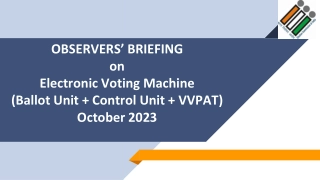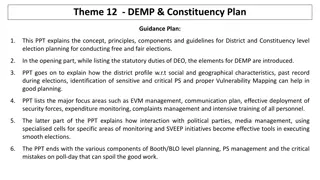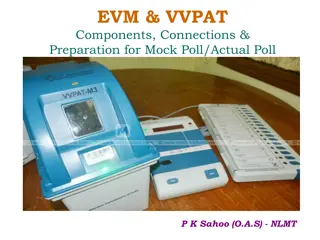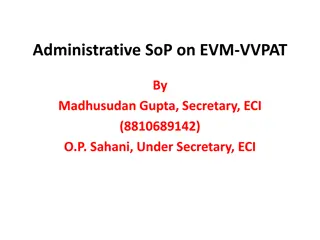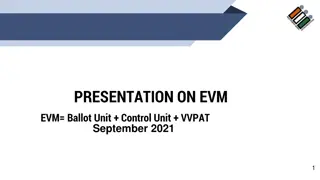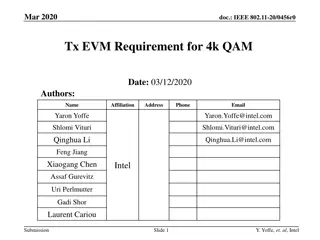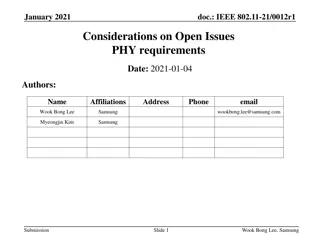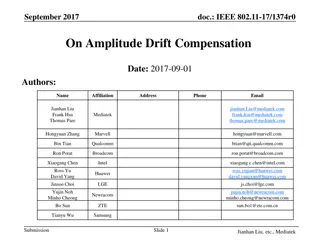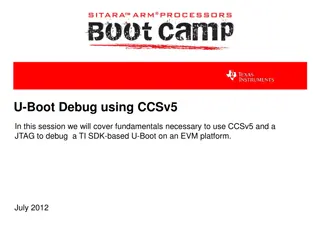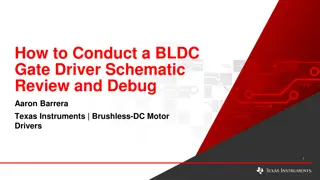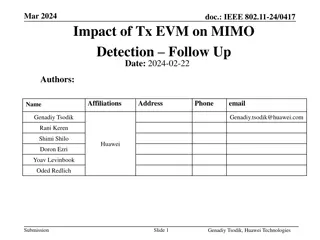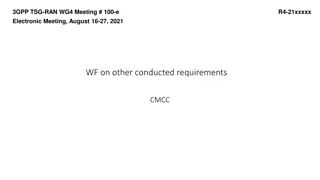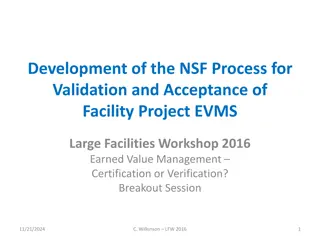OBSERVERS’ BRIEFING
Advanced encryption techniques, stringent manufacturing processes, and administrative safeguards are in place to ensure the security and integrity of electronic voting machines. Observers play a crucial role in overseeing EVM/VVPAT checks, commissioning processes, and ensuring transparency throughou
0 views • 16 slides
Supreme Court Rejects Petitions Against EVM Use In Elections
Supreme Court Rejects Petitions Against EVM Use In Elections\\nNew Delhi: \\nThe Supreme Court on Friday dismissed two writ petitions: namely, apprehensions over 19 lakhs missing EVMs and another petition to use ballot paper to conduct elections while reposing its faith in the EVMs.\\nAdjudicating t
1 views • 4 slides
Comprehensive Guide to District and Constituency Election Planning
This presentation delves into the intricate details of District and Constituency Election Management Plans (DEMP), focusing on various aspects such as district profiles, EVM management, security deployment, communication strategies, and training. It emphasizes the importance of interaction with poli
1 views • 64 slides
Guide to EVM and VVPAT Components, Connections, and Preparation for Poll
This comprehensive guide covers the components of Electronic Voting Machines (EVM) and Voter Verifiable Paper Audit Trail (VVPAT) systems, including protocols for setting up, connection processes for mock and actual polls, and instructions for masking/unmasking ballot buttons on the Balloting Unit (
0 views • 13 slides
EVM-VVPAT Administrative Procedures for Election Management
This document outlines the standard operating procedures (SoP) for Electronic Voting Machines (EVMs) and Voter Verifiable Paper Audit Trail (VVPAT) systems used in elections. It covers the components of EVMs, the process of voting, the roles of polling officers, and various sub-topics such as storag
1 views • 58 slides
Understanding Electronic Voting Machines (EVMs) in Elections
Electronic Voting Machines (EVMs) consist of Ballot Unit, Control Unit, and VVPAT Unit. This technology enables voters to cast their votes securely and efficiently. Explore the history, technical details, security measures, and the debate surrounding EVMs in this insightful presentation.
0 views • 71 slides
IEEE 802.11-20/0456r0: Transmission EVM Requirements for 4k QAM
The document discusses the tradeoff between error vector magnitude (EVM) and transmission power in the context of 4k QAM modulation. It explores the EVM requirements for 4k QAM and addresses issues such as channel estimation errors, modulation and coding scheme (MCS) parameters, and degradation with
0 views • 11 slides
IEEE 802.11-21/0012r1 Considerations on Open Issues in PHY Requirements
In the January 2021 document IEEE 802.11-21/0012r1, discussions were held on open issues related to PHY requirements, including LO requirements for 320 MHz transmission, EVM requirements for 1024 QAM and BPSK-DCM-DUP, minimum sensitivity for 4K QAM and BPSK-DCM-DUP, and channel rejection levels. Sug
0 views • 12 slides
Procedures for Closing and Declaring Polls in an Election
Learn the steps involved in closing and declaring polls during an election, including distributing slips, closing the control unit, recording votes, sealing election papers, and delivering materials to the collection center. Follow guidelines for distributing numbered slips to voters present at clos
0 views • 38 slides
Amplitude Drift Compensation in IEEE 802.11-17/1374r0 Document
The document discusses Amplitude Drift Compensation in the context of EVM tests for IEEE 802.11 devices. It highlights the challenges posed by amplitude drift, the impact on EVM degradation, and the need for compensation mechanisms. Various authors from different affiliations contribute insights on
0 views • 6 slides
U-Boot Debug Using CCSv5 - Fundamentals and Examples
This session covers the essentials of using CCSv5 and a JTAG to debug a TI SDK-based U-Boot on an EVM platform. It includes pre-work checklist, agenda, background information, components of Sitara Linux SDK, where to get the SDK, CCS installation details, and example development environment for AM33
0 views • 34 slides
Conducting a BLDC Gate Driver Schematic Review and Debug Process
Exploring how to effectively review and debug a Brushless-DC (BLDC) motor driver schematic, focusing on locating EVM hardware files, understanding schematic recommendations, detecting errors, and providing valuable feedback. The process involves utilizing available resources to create, review, and d
0 views • 30 slides
Impact of Tx EVM on MIMO Detection Follow-Up
This document discusses the impact of Tx EVM on MIMO detection, highlighting that improving Tx EVM can achieve theoretical gains in nonlinear detection. It addresses questions raised during discussions and presents an optimal detector scenario in the presence of colored noise from Tx EVM. Simulation
0 views • 14 slides
3GPP TSG-RAN WG4 Meeting #100-e Electronic Meeting Summary
The 3GPP TSG-RAN WG4 Meeting #100-e held discussions on defining EVM limits, modulation schemes, repeater requirements, and IMD requirements. Emphasis was placed on linking EVM levels to modulation schemes and declaring supported levels for repeaters. The meeting also addressed NF equivalent RF requ
0 views • 7 slides
Development of NSF Process for Validation and Acceptance of EVMS: Insights and Recommendations
NSF is enhancing guidelines for Earned Value Management Systems (EVMS) to evaluate construction project status. Insights suggest obtaining certification and validation for maintaining acceptable EVM systems, important for project oversight. Recommendations highlight the need for decisive action to e
0 views • 16 slides
